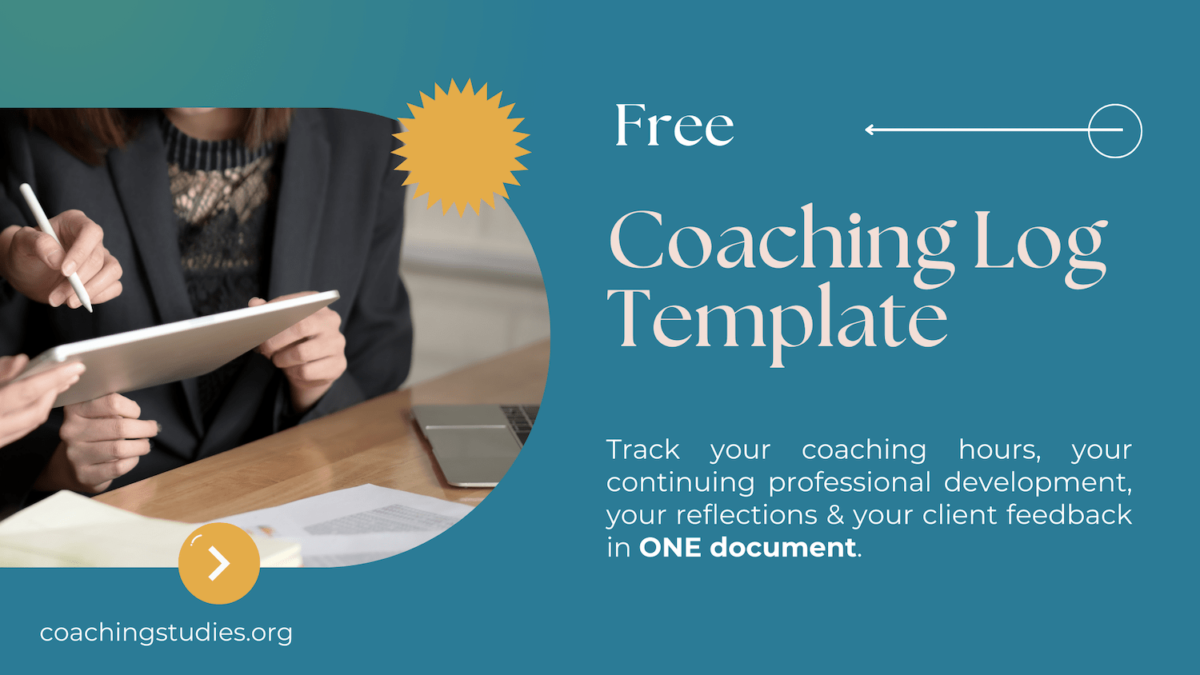Many coaches limit the tracking to what is required for their coaching log or the information needed for their accounting. They obviously have to be aware of data protection regulations, and not to collect data about their clients that they do not have a business purpose for.
This business purpose is key here. Because there is some data that you may want to start gathering so you can assess your coaching effectiveness. As a coaching practitioner, you have to keep learning and improving your skills and approach. You can identify potential areas of development through self-reflection, the direct feedback you receive from your clients, and the success of their coaching engagement.
In this article, we are going to look into the type of information you could collect to start looking into your coaching effectiveness. This data is intended for you to look at your overall practice, so make sure it is anonymous (no client names) and aggregated (applied to all of your sessions).
THE COACHING TOPIC OF EACH SESSION
The first information you can collect is the general topic of each session you facilitate. You may offer one type of coaching (career, relationship, parenting, etc.), but if you are a great coach, you likely coach the person and the problem. It means that some sessions will be about a topic different from the one initially contracted for.
For example, a client may have hired you as a leadership coach to help them become a better manager. But some of the sessions revolve around satellite topics like their relationship with their partner, becoming more mindful, and managing stress.
If you keep track of the general topic of each session, you will be able to see how many sessions have been dedicated to certain topics, and if there is anything you can learn or do about it to better support your clients in those areas.
CLIENT PROGRESS & MILESTONES
One important element of your effectiveness as a coach is your ability to support your clients to create positive change. Your clients will make progress session after session – it could be a new insight or awareness, or an action they took, or a goal they’ve reached.
We advise you to take notes of the progress your clients. It will encourage you to keep the notion of progress and growth at the centre of your coaching. That way, if you struggle to find how your clients have grown, you can check in with your clients from time to time and directly ask them a question about it. You can also review what needs to change in the coaching process.
CLIENT FEEDBACK ABOUT their experience
Client feedback is of the utmost importance when assessing coaching effectiveness, and we find that not a lot of coaches make it systematic. You can create a feedback form and decide at which frequency you will be sending it. Once you commit, you should send it to all your clients whenever they reach the step of the coaching engagement that you decided is adequate to collect feedback.
The first thing the client should share with you is about their experience in the coaching process.
- How is the coaching making them feel?
- What progress have they made?
- How have they already changed as a result of the coaching?
- What have they already learned about themselves?
This will allow you to assess any transformation – big or small – that resulted from the sessions.
CLIENT FEEDBACK ABOUT YOUR PRACTICE
The other key aspect of the feedback from your clients is about their perception of the work you are doing/have done. This one is probably the hardest to ask because it can feel vulnerable as a coach, but it’s still essential to hear from clients about what they thought of the work you did.
We’re going to share a few questions here that you could ask:
- How did I support you reach your goals?
- Did you feel listened to and understood?
- Did I help create a safe space where you were comfortable saying what was on your mind?
- Was the coaching a valuable use of your time? How could I make it more valuable?
- Would you recommend coaching to a friend or colleague?
- What should I stop, start, continue?
SUCCESS STORIES
Ask your clients to share their success stories with you, either in a written form and in a short conversation. Document those with your clients’ permission (keep them anonymous) so you can start seeing patterns.
- Do all your clients have success stories to share?
- For those who don’t, what may have happened? What would you have done differently?
- For those who did, what else could they have done if your coaching had been 10% more effective?
Your self-care and well-being
Coaching effectiveness isn’t just about the client reaching all of their goals – even though it’s an obvious element to take into consideration. It’s also about your ability as a coach to demonstrate great coaching skills without letting it affect you: your energy, your mood, your personal well-being. If being an efficient coach to your clients shouldn’t feel like you’ve drained all your resources. That would put you right on the path to burn-out.
It’s perfectly normal to feel tired about a busy day, a busy week – but if you are always tired, or if you find yourself not being able to switch off and enjoy your life, it means that you’re not being as efficient as you could be. So look for patterns that may show how your practice is affecting you, and what you could do to make effective coaching more sustainable.
LET'S STAY IN TOUCH
If you want to hear from us about all things coaching and not miss any new articles, sign up below 👇
Thank you!
We hope you like the content we will share.










